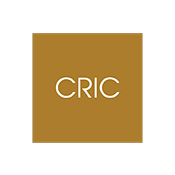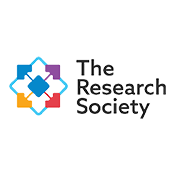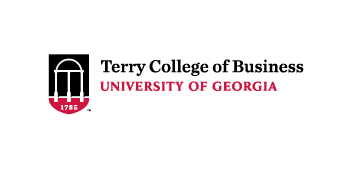Stay connected
Be the first to know about new programs, upcoming events, or other exciting opportunities happening at the University of Georgia by joining our mailing list.
Discover the power of market research.
Free archived webinars: practical insights, real-world impact.
About this course
Learning objectives
After completing this course, you should be able to:
- Explain the differences between qualitative and quantitative market research in terms of objectives, sample characteristics, types of data provided, analysis methods, outcomes and when to choose each.
- List some of the types of business decisions that qualitative market research can be used to inform.
- Give examples of misapplications of qualitative market research and explain why it should not be used in these ways.
- Identify the different forms of qualitative market research, including direct versus indirect (observational) techniques, and IDIs versus dyads versus focus groups; understand the relative strengths and weaknesses of each; and understand when each should be used.
- Discuss the use of technology in qualitative market research, including the opportunities offered by mobile technologies.
- List the steps involved in planning and conducting qualitative market research, including the determination of an appropriate qualitative method, selecting qualitative research partners, developing the tools required to execute the research, and understanding the differences between domestic and international projects.
- Describe how a Moderator’s guide is different than a questionnaire. Discuss the best practices associated with building a successful Moderator’s guide and observational report.
- Identify how to select the ideal internal or external moderator for the project and understand which attributes to look for when selecting a moderator.
- Identify how to design a screener used to recruit participants.
- Discuss how to manage client participation in qualitative settings and how to set expectations in the interpretation of results.
- Describe how to design a UX (user experience) study.
- Discuss the fundamental and applied methods of analyzing and summarizing qualitative data.
- Give examples of ethical issues specifically related to the conduct and interpretation of qualitative market research.
Who should attend?
- Entry-level researchers looking for a solid introduction to all aspects of qualitative market research.
- Mid-level staff seeking to expand their skillsets.
- Experienced researchers looking to catch up with the latest developments.
- Corporations seeking professional development options for their internal training portfolio.
- Supplier-side companies seeking courses for new-employee onboarding.
- Researchers who lead or contribute to project design.
- Client-side researchers responsible for writing RFPs and evaluating proposals.
- People just entering the research field who want to understand the power and proper use of qualitative market research studies.
Continuing Education Information
Students successfully completing graded components earn a Digital Badge (Opens in a new window) and 1.1 University of Georgia Continuing Education Unit (Opens in a new window) (CEU) from The University of Georgia.
As a graduate of the course you will be well-positioned to make well informed choices about when, where and how to utilize qualitative research to provide fresh and actionable insights. This recognition will help you advance in your company and the industry. This recognition will help you advance in your company and the industry.
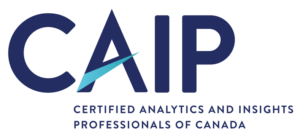
CAIP Canada (Opens in a new window) also recommends the course for candidates looking to fill in the gaps or gain a refresher in specific areas.
Requirements & policies
Schedule
Enroll at any time and complete the course’s required graded components within 30 days.
Fees & funding information
$359 – Standard Fee
$329 – Association Discount (Members* of: Insights Association; ESOMAR; Canadian Research Insights Council, The Research Society, Intellus Worldwide, QRCA, AMAI, WAPOR-Latinoamérica, MRII Board of Directors, UGA MMR Advisory Board.)
$50 – One-Month Extension (only one extension is granted per participant)
*Membership will be verified.
Prepayment is required to be registered. The prices listed are per person (US Funds).
Cancellation or refund
We will issue a refund, minus a $100 processing fee, if you have not accessed the online course. All cancellation and refund requests must be sent via email to gc-student@uga.edu no later than seven (7) days after your course access information is issued.

Technology
Take advantage of the different features (PDF files, URLs/links to external websites, animated exercises, audio and video clips) you should use a browser such as Chrome (Opens in a new window), Firefox (Opens in a new window), Microsoft Edge (Opens in a new window), or Safari (Opens in a new window) and a fast internet connection provide the best experience. The online platform supports many popular web browser versions. To find out if your computer’s current software configuration is compatible, see System & Software Requirements (Opens in a new window).
Prerequisites
There are no prerequisites for enrolling in Qualitative Market Research. However, prospective enrollees might also consider our course, Introduction to Market Research and Market Research Design and Data Identification.
Explore more foundational, topic-specific courses in our Principles Express series (Opens in a new window).
Textbooks
Suggested (not required)
Malhotra, Naresh K., Essentials of Marketing Research: A Hands-On Orientation, Pearson Education: Upper Saddle River, NJ. ISBN-13: 978-0-13-340182-0 (digital subscription edition)
Included in the online course are suggested reading assignments from the above textbook. These readings are not required content and will not be part of the testing for the course. The textbook suggestions are simply intended to add additional depth to your understanding of the topic.
People & organizations
Author
Jeff Walkowski – Principal, QualCore.com
Jeff is the principal of QualCore.com Inc., a consulting firm providing traditional and online qualitative research services to a wide range of industries including health care, financial services, automotive, and information services. He was educated as a quantitative specialist and entered the industry in the 1980s as a statistician. He later discovered his talents as a Moderator and evolved into a qualitative specialist by the mid-1990s.
Jeff’s specialty is online qualitative research. He has conducted over 700 online sessions (real-time chats and multi-day message boards); he has spoken about online qualitative research at conferences in North America, Europe, and Asia; and he has published articles on the subject. Jeff co-chaired the Online Qualitative Research Task Force of the Qualitative Research Consultants Association, co-edited Qualitative Research Online (Research Publishers LLC, 2004), and co-developed a training course to help traditional Moderators adapt their skills to the online environment.

Supporting associations
Founding Organizations
Proud Corporate Sponsors of MRII
 (Opens in a new window)
(Opens in a new window) (Opens in a new window)
(Opens in a new window) (Opens in a new window)
(Opens in a new window) (Opens in a new window)
(Opens in a new window) (Opens in a new window)
(Opens in a new window) (Opens in a new window)
(Opens in a new window)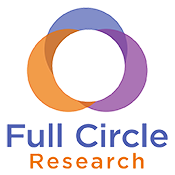 (Opens in a new window)
(Opens in a new window) (Opens in a new window)
(Opens in a new window) (Opens in a new window)
(Opens in a new window) (Opens in a new window)
(Opens in a new window) (Opens in a new window)
(Opens in a new window) (Opens in a new window)
(Opens in a new window) (Opens in a new window)
(Opens in a new window) (Opens in a new window)
(Opens in a new window) (Opens in a new window)
(Opens in a new window) (Opens in a new window)
(Opens in a new window) (Opens in a new window)
(Opens in a new window)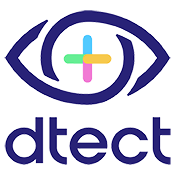 (Opens in a new window)
(Opens in a new window) (Opens in a new window)
(Opens in a new window) (Opens in a new window)
(Opens in a new window) (Opens in a new window)
(Opens in a new window)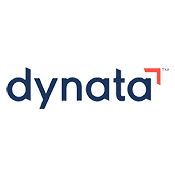 (Opens in a new window)
(Opens in a new window) (Opens in a new window)
(Opens in a new window)Supporting Organizations
Prices, course details, dates, and times are subject to change.
Contact us + FAQs
FAQs
View the most frequent questions asked by our learners
Financial and Military Assistance
Find out which programs are eligible for assistance
Accommodations
View our accommodation policy





